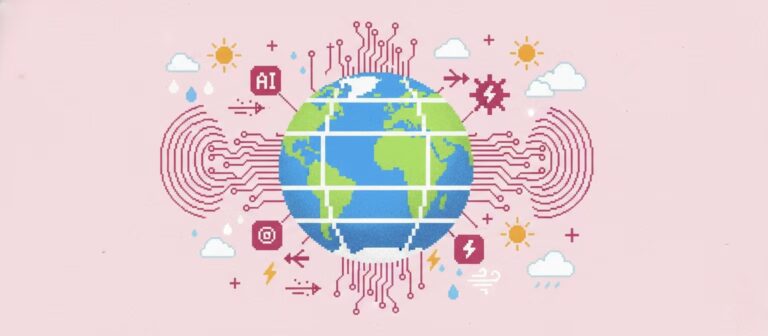Command Palette
Search for a command to run...
Is the COVID-19 Pandemic Stopping Global Warming and Allowing the Earth to Heal Itself?
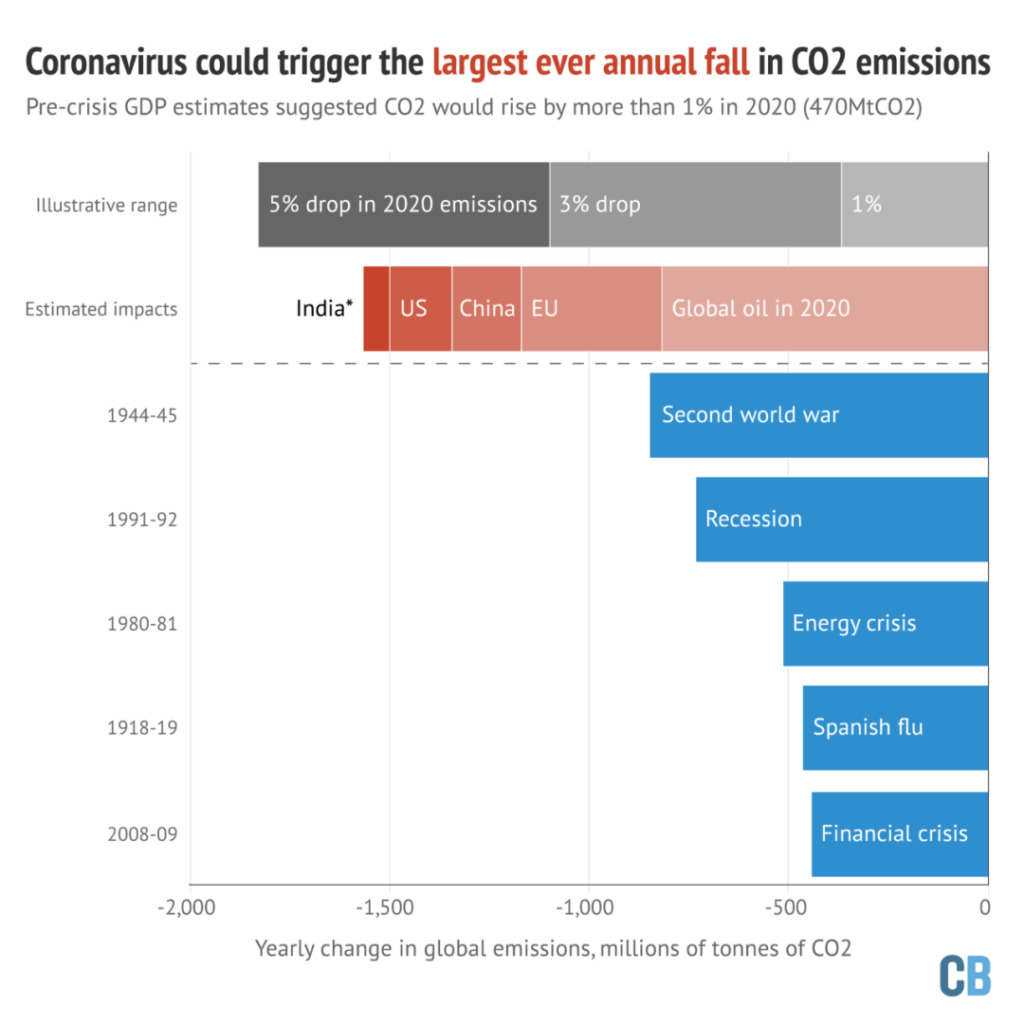
Affected by the COVID-19 pandemic, the economic environment has shrunk sharply. Some institutions predict that global carbon emissions this year will reach a historical high, far exceeding the period after World War II and the 2008 financial crisis, but it still cannot stop the trend of global warming.
The economic environment shrank by 30%, while carbon emissions only decreased by 4%
The continuation of the COVID-19 pandemic has had a huge impact on the economies of all countries in the world. According to forecasts, in the first quarter of this year, China's total economic output will shrink by 40%, and the US's total economic output will shrink by 30%-50%.
According to a report by China Business News, they invited 20 chief economists in my country to make forecasts, and all economists predicted that the slowdown in GDP growth in 2020 has become an indisputable fact.
Moreover, in the short term, the impact of the epidemic on the economy is more significant, and the GDP growth rate in the first quarter will drop sharply to negative numbers, with the predicted average being -6.48 %.

People stopped traveling and going out shopping, which led to a significant economic contraction, but did not achieve the same effect on carbon emissions.
Carbon emissions have fallen to their highest level yet, but they still can’t stop global warming
Carbon Brief, a British climate policy website and an authoritative energy agency in the industry, predicts that the new coronavirus pandemic will reduce carbon dioxide emissions by about 1,600 Mt, which is about 4% of global emissions in 2019.
The last time carbon emissions dropped this much was at the end of World War II, in 1944-1945, when global carbon emissions fell by 845 Mt.
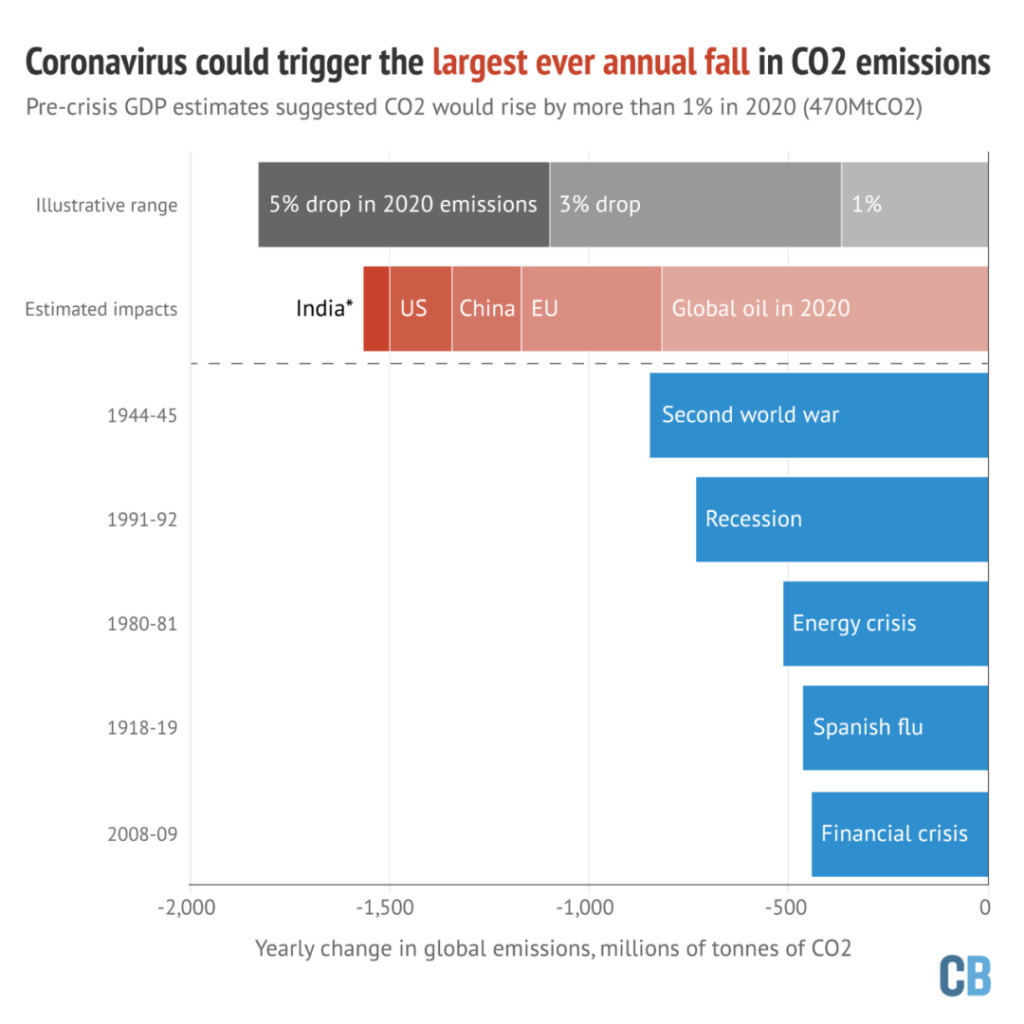
The blue represents: post-World War II, the Great Depression of 1991-1992, the energy crisis, the Spanish flu, the 2008 financial crisis, and the amount of carbon dioxide emissions reduced during these periods.
The red color represents: the predicted reduction in carbon emissions from the COVID-19 pandemic in India, the United States, China, and the European Union, and the predicted reduction in carbon emissions from the global oil sector, the total of which is the predicted reduction in world carbon emissions.
On this basis, a few days ago, some media wrote articles such as "Carbon emissions are falling rapidly, and the new crown epidemic is preventing global warming", which gave examples of the river water in Venice becoming clearer and animals appearing in the city.
The conclusion is that the earth is healing itself and global warming is slowing down.
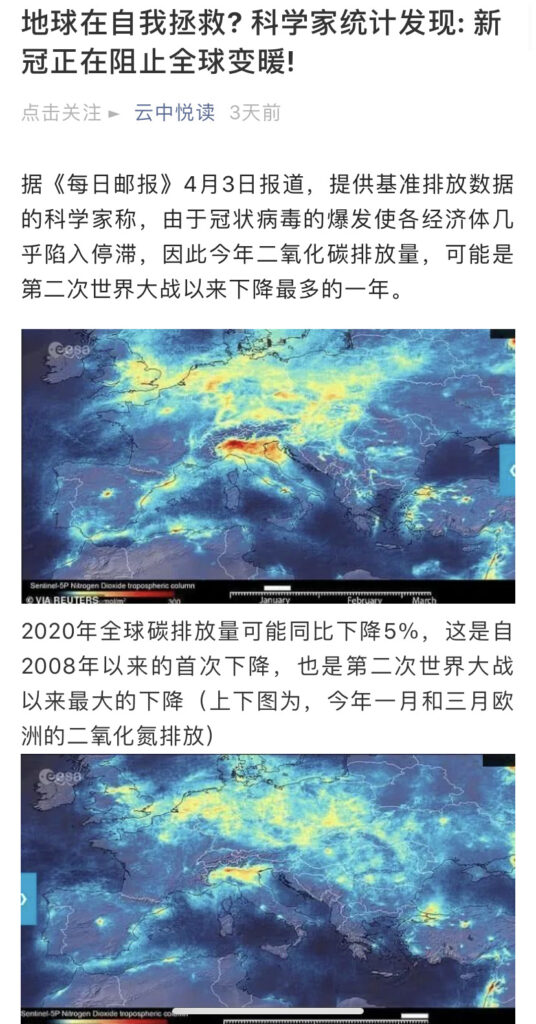
These are all beautiful imaginations.
The retaliatory growth of the economy is a situation that is likely to occur after the end of the epidemic, and it will not be controlled due to considerations of carbon emissions.
Following the 2008-2009 financial crisis, carbon emissions fell by the fifth largest amount on record, by 440 Mt.
But in the year after the financial crisis, stimulated by economic growth, global carbon emissions retaliated by growing by 1,612 Mt.
And our ideal plan to curb global warming: The world would need to reduce carbon emissions by 6% each year over the next decade to keep temperatures down by 1.5 degrees Celsius.
In other words, even if the global economy is experiencing negative growth, even if we have stopped most global trade and travel in recent months.
But this reduction in emissions and temporary ecological improvements are not enough to shake up the situation of global warming.
Stop dreaming about the planet healing itself and implement real solutions
In June 2019, Yoshua Bengio, Andrew Ng and Carla Gomes joined more than 20 climate change AI steering committee and advisory members, including DeepMind founder Demis Hassabis.
Co-authored a paper titled "Using Machine Learning to Fight Climate Change" with 650 references.

The paper explores the application of machine learning to climate change, such as predicting supply and demand or extreme weather events, as well as predictive AI that can improve the efficiency of cities, transportation and power systems.
Fighting climate change: Stop the slogans, stop the fantasy
At NeurIPS 2019 at the end of last year, Yoshua Bengio, Andrew Ng, Jeff Dean, and Carla Gomes were invited to discuss in the "Climate Change" session hosted by Climate Change AI.
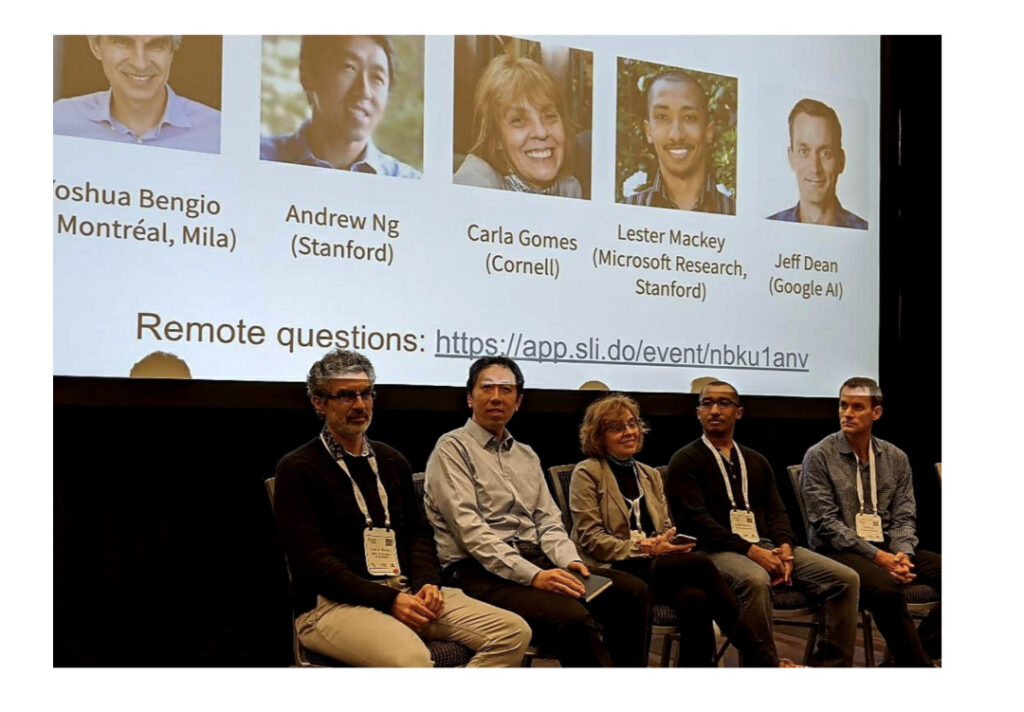
Yoshua Bengio said that discussing projects to reduce carbon emissions at NeurIPS might be more meaningful than discussing GANs or other technological advances.
Andrew Ng also believes that instead of emphasizing the seriousness of the climate problem, it is better to take practical action - first sort out the relevant data sets, then conduct experiments, and finally publish the research results or have a dialogue with climate scientists.
Next formal discussion
As originally planned, the next forum on using AI to combat climate change will continue at ICLR 2020 in Addis Ababa, Ethiopia this month.
However, due to the COVID-19 pandemic, ICLR 2020 will be held online from April 25th to 30th (website: https://iclr.cc/).
References:
https://www.leiphone.com/news/201912/37EHy6r7KK54JEFD.html
-- over--


